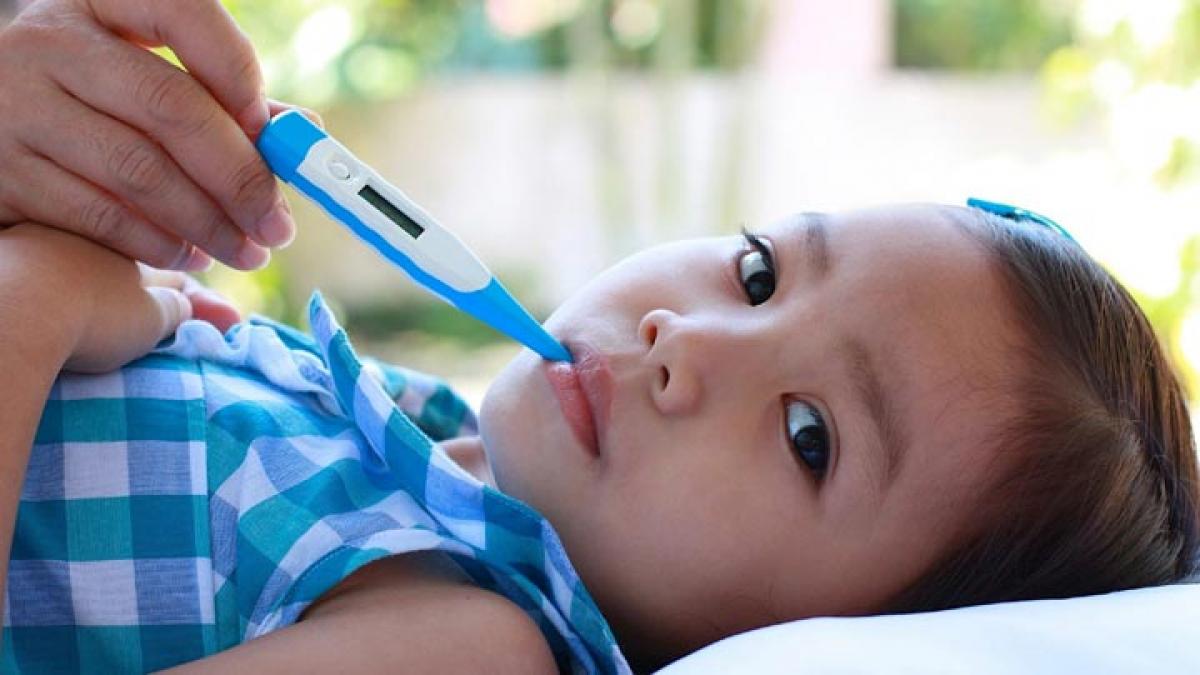Live
- COP 29: Rich Nations Have Their Say
- Industrial parks to be set up in every constituency
- Edu institutions to receive fee reimbursement soon
- SP orders speedy disposal of PGRS petitions
- 11 get placement after completing CPBFI
- Balineni dares Chevireddy for an open debate
- SRM hosts IRIS-2024 summit
- Make AP solar hub: CM
- Pakistan Protests: PTI Supporters March Towards Islamabad, Demanding Imran Khan's Release
- Additional Collector Conducts Surprise Visit to Boys' Hostel in Wanaparthy
Just In

Febrile seizures are fits or convulsions that are brought on by fever. These are common and occur in about in 3-5 per cent of otherwise healthy children, between the ages of 6 months and 6 years. Peak occurrence around 18 months.
Febrile seizures are fits or convulsions that are brought on by fever. These are common and occur in about in 3-5 per cent of otherwise healthy children, between the ages of 6 months and 6 years. Peak occurrence around 18 months.
The febrile seizures are usually brief and last from few seconds to about 10 minutes. They typically occur on the first day of fever and with a temperature above 101° F. In some cases the child may not have fever at the time of seizure but may develop subsequently.
Usually there is a history of febrile seizures in the family. About 30 per cent of children tend to have recurrences. These seizures usually are not a cause of other seizure disorders or epilepsy (epilepsy is a tendency to have recurrent fits without a known cause).
What precautions should be taken during a seizure?
Stay calm. Don’t panic. Please time the event. Make sure that the child is safe and away from obstacles. Loosen any tight clothing.
Don’t attempt to stop the seizure or slap or shake the child in attempt to wake him/her. The child may move around during the seizure, and parents should not try to hold the child down. Do not stop the fit movements.
Do not force anything in the mouth to prevent from biting the tongue. After the child stops fitting, turn him to one side to prevent choking. Seek immediate attention if it is a first febrile seizure.
Are febrile seizures harmful?
Though they typically do not cause damage to the brain, they are quite frightening and dramatic for the parents who witness these.
Majority of these seizures are short lasting and do not cause any long term damage. During a seizure, there is a small chance that the child may be injured by falling or choking on food or saliva in the mouth. Using proper first aid measures as described above can help avoid these.
Children usually have a normal school achievement and perform well on Intellectual tests as their siblings who do not have the seizures. Most children who have brief (< 10 minutes) or multiple seizures do not go on to develop epilepsy.
Children with a family history of epilepsy, cerebral palsy, delayed development, or other neurological conditions are at increased risk of developing epilepsy. Febrile seizures may be more common in these children, but do not contribute much to the overall risk of development of epilepsy.
However children with focal seizure ( a seizure that starts in one part of the body), Prolonged seizure ( > 10 minutes,), a seizure that recurs within 24 hours have an increased risk ( 10%) of developing epilepsy as compared to general population.
How should febrile seizures be evaluated?
These fits or seizures happen when a child usually has fever due to a minor infection.
However serious infections like brain infection needs to be excluded and hence the diagnosis of febrile seizures needs to be made only by qualified health care professionals. A careful history and examination along with laboratory work up might be needed.
EEG's and neuroimaging studies like CT scan or MRI should only be performed if there is a clinical suspicion. Routine performance of scan and EEG's have been found to have limited value. Abnormalities on EEG do not predict the occurrence of future seizures or the subsequent development of epilepsy.
Can subsequent febrile seizures be prevented?
The rapid rise of temperature seems to trigger seizures rather than the actual degree of fever.
Regular, round the clock usage of antipyretics may be given at first sign of infection in children with known febrile seizures. This might help to prevent fever spikes that are the triggers for a seizure.
However available studies show that this does not reduce the risk of having another febrile seizure. The regular usage of anticonvulsants are not recommended.
They might prevent recurrences but will not prevent subsequent development of epilepsy. As these seizures are usually short lasting and do not cause brain damage, the side effects of these medicines outweigh any benefits.
As children prone to prolonged seizures are at risk of potential injury and risk of developing epilepsy, one might consider using medication to prevent prolonged episodes. (The author is a paediatric neurologist at Apollo Health City in Hyderabad)

© 2024 Hyderabad Media House Limited/The Hans India. All rights reserved. Powered by hocalwire.com







